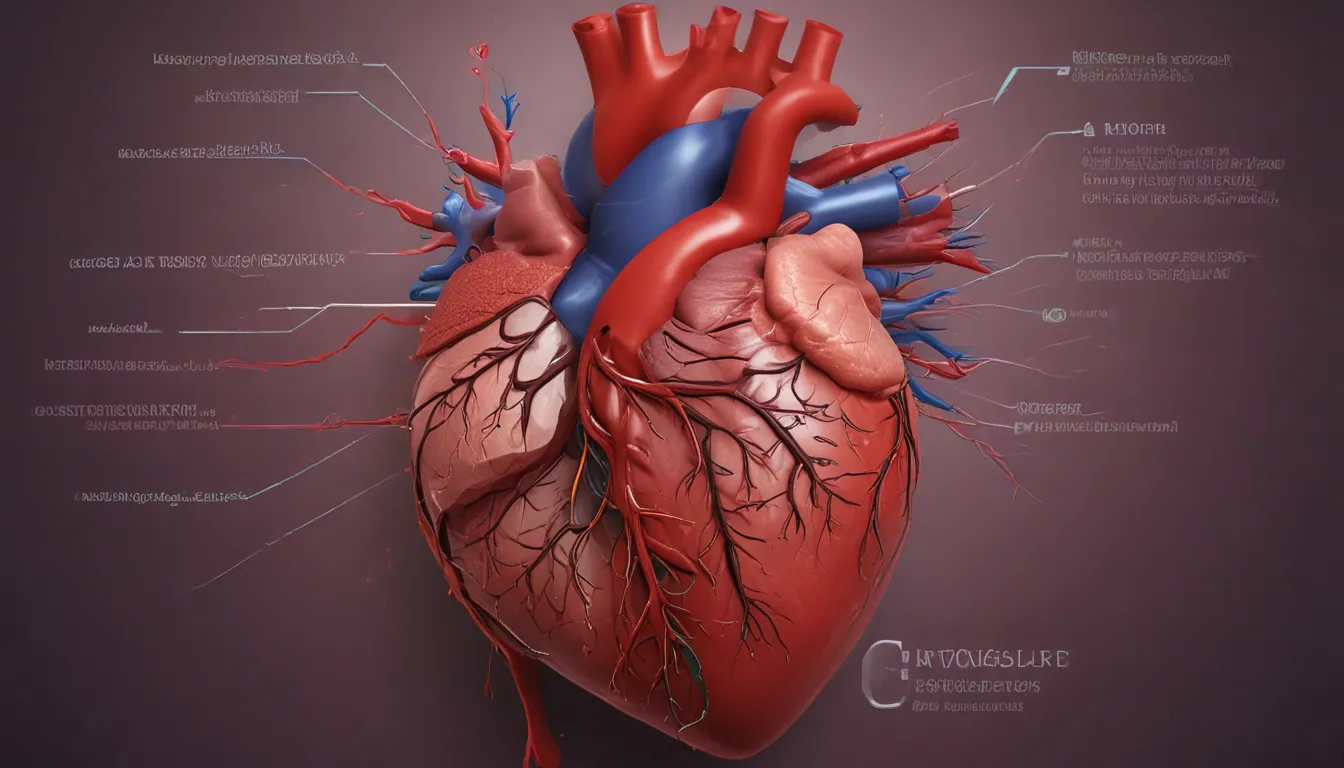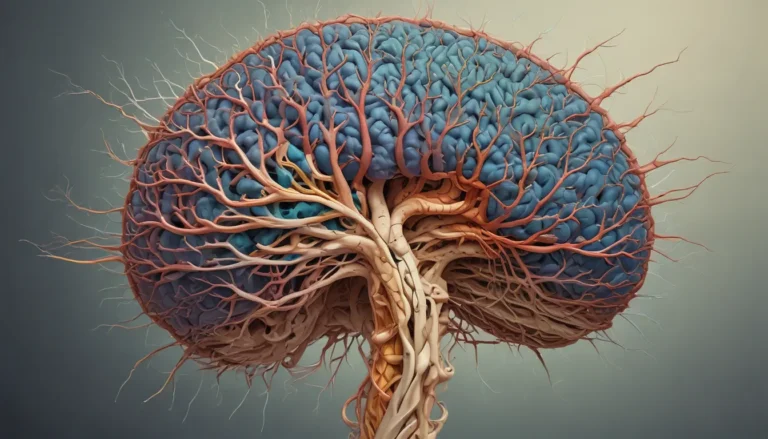A Note About Images: The images used in our articles are for illustration purposes only and may not exactly match the content. They are meant to engage readers, but the text should be relied upon for accurate information.
Cardiovascular diseases (CVDs) are a prevalent concern worldwide, impacting the health of millions of individuals. From heart attacks to strokes, these conditions pose significant risks to our well-being. In this article, we will unravel 19 fascinating facts about cardiovascular diseases, providing valuable insights into their prevention, diagnosis, and management. Whether you have a passion for biology, work in healthcare, or are simply curious about the human body, this information will empower you to prioritize your cardiovascular health.
Exploring Cardiovascular Diseases: Key Takeaways
- Cardiovascular diseases are the leading cause of death globally for both men and women.
- Lifestyle choices and regular check-ups are pivotal in preventing these silent killers.
- Factors like diet, exercise, stress management, and social support play a crucial role in maintaining heart health.
The Global Impact of Cardiovascular Diseases
- Leading Cause of Mortality: Cardiovascular diseases top the charts as the leading cause of death worldwide, accounting for nearly 30% of all mortality.
- Gender Disparity: While often associated with men, heart disease is also the leading cause of death in women, surpassing deaths from all types of cancer combined.
- Silent Threat: Dubbed the “silent killer,” cardiovascular diseases can develop without noticeable symptoms, underscoring the importance of regular screenings for early detection.
Managing Risk Factors for Heart Health
- High Blood Pressure: Hypertension, affecting one in three adults globally, poses a significant risk for cardiovascular diseases, manageable through lifestyle changes and medication.
- Smoking’s Impact: Tobacco smoke damages blood vessels, increasing the risk of heart disease and stroke, highlighting the importance of smoking cessation.
- Nutrition and Exercise: A diet rich in fruits, vegetables, whole grains, and lean proteins, coupled with regular physical activity, significantly lowers the risk of heart disease.
Holistic Approaches to Heart Health
- Stress Management: Chronic stress elevates blood pressure, cholesterol levels, and contributes to heart disease, necessitating the adoption of relaxation techniques for overall heart health.
- Genetic Predisposition: Family history of cardiovascular diseases can heighten the risk, emphasizing the role of genetic factors in conditions like high blood pressure and high cholesterol.
- Obesity Challenge: Excess weight strains the heart, increasing the risk of cardiovascular diseases like coronary artery disease, heart failure, and diabetes.
Enhancing Heart Health through Lifestyle Choices
- Sleep Quality: Insufficient or poor-quality sleep heightens the risk of heart disease, linking lack of sleep to conditions such as high blood pressure and obesity.
- Gender Variances: Men and women often experience cardiovascular diseases differently, necessitating awareness of atypical symptoms in women to ensure timely diagnosis.
- Heart-Healthy Superfoods: Incorporating nutrient-rich foods like salmon, avocado, nuts, berries, and olive oil significantly benefits heart health.
Proactive Measures for Cardiovascular Health
- Regular Physical Activity: Engaging in activities like brisk walking, jogging, or cycling strengthens the heart, lowers blood pressure, reduces cholesterol, and maintains weight.
- Alcohol Consumption: While moderate alcohol intake may offer health benefits, excessive consumption increases the risk of high blood pressure, heart failure, and stroke.
- Diabetes Connection: Individuals with diabetes face a higher likelihood of developing cardiovascular diseases due to elevated blood sugar levels damaging blood vessels.
Creating a Supportive Environment for Heart Health
- Social Support: Strong social connections correlate with lower heart disease risk and better overall health outcomes, emphasizing the importance of a robust support system.
- Medication Management: Prescription medications like statins, beta-blockers, and ACE inhibitors control blood pressure, lower cholesterol, and reduce the risk of heart attacks and strokes.
- Diagnostic Tools: Exercise testing, stress tests, and electrocardiograms are pivotal in diagnosing cardiovascular diseases, enabling the evaluation of heart health and blood vessel functionality.
Upholding Heart Health Through Prevention
- Preventive Strategies: Embracing a healthy lifestyle, managing risk factors, and undergoing regular medical check-ups form the cornerstone of combating cardiovascular diseases.
- Collective Efforts: Raising awareness about cardiovascular diseases and encouraging others to prioritize heart health can collectively reduce disease burden and enhance global well-being.
Conclusion: Empowering Heart Health
Cardiovascular diseases serve as a significant global health challenge, highlighting the importance of understanding and actively managing these conditions. By adopting healthy lifestyle habits, undergoing regular screenings, and seeking early detection, individuals can proactively safeguard their cardiovascular health. Together, through awareness, prevention, and support, we can alleviate the impact of cardiovascular diseases and promote a healthier future for all.
FAQs: Enlightening Insights
- Cardiovascular Diseases: encompass a range of heart and blood vessel disorders, including coronary artery disease, heart failure, and stroke.
- Preventive Measures: Lifestyle modifications, regular exercise, a balanced diet, smoking cessation, stress management, and ongoing medical care are key preventive strategies.
- Hereditary Factors: Some cardiovascular diseases have genetic components, necessitating thorough evaluation and monitoring for individuals with a family history of heart disease.
- Symptoms Identification: Symptoms may vary but can include chest pain, shortness of breath, fatigue, dizziness, palpitations, and leg swelling, warranting prompt medical attention.
- Diagnostic Approaches: Diagnosis involves medical history review, physical exams, blood tests, imaging studies, and stress tests to assess heart and vessel health.
- Treatment Options: Management may include lifestyle changes, medication, and medical procedures like stenting or bypass surgery, tailored to the condition’s severity and type.
- Exercise Benefits: Regular physical activity improves heart function, lowers blood pressure, manages weight, and enhances overall cardiovascular well-being.
- Stress Impact: Chronic stress contributes to cardiovascular disease development, highlighting the need for stress management techniques and self-care practices.
- Gender Susceptibility: Both men and women are equally susceptible to cardiovascular diseases, with women sometimes experiencing atypical symptoms during heart events.
Embracing heart health is essential for overall well-being, and staying informed about cardiovascular diseases equips individuals to make informed choices for their health. Beyond these intriguing facts, exploring additional resources like National Wear Red Day, understanding the impact of excessive screen time, and discovering the benefits of standing desk converters can further enhance a health-conscious lifestyle. Our commitment to delivering credible and compelling content ensures that your journey to heart health is supported with accurate and engaging information. Trust in our dedication to quality and authenticity as you embark on your path to optimal cardiovascular wellness.






